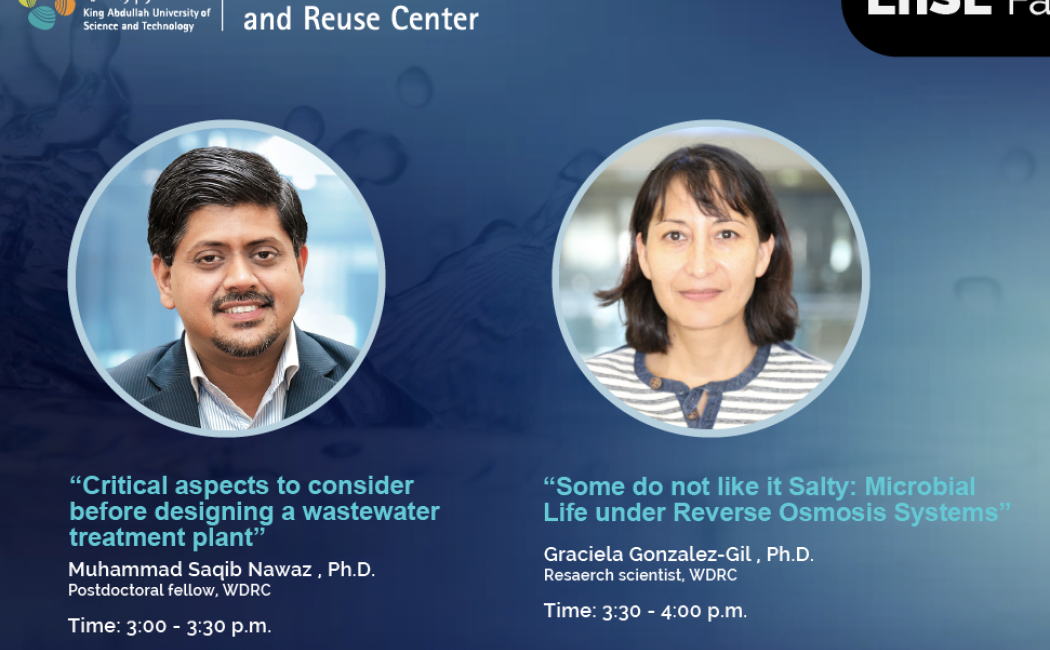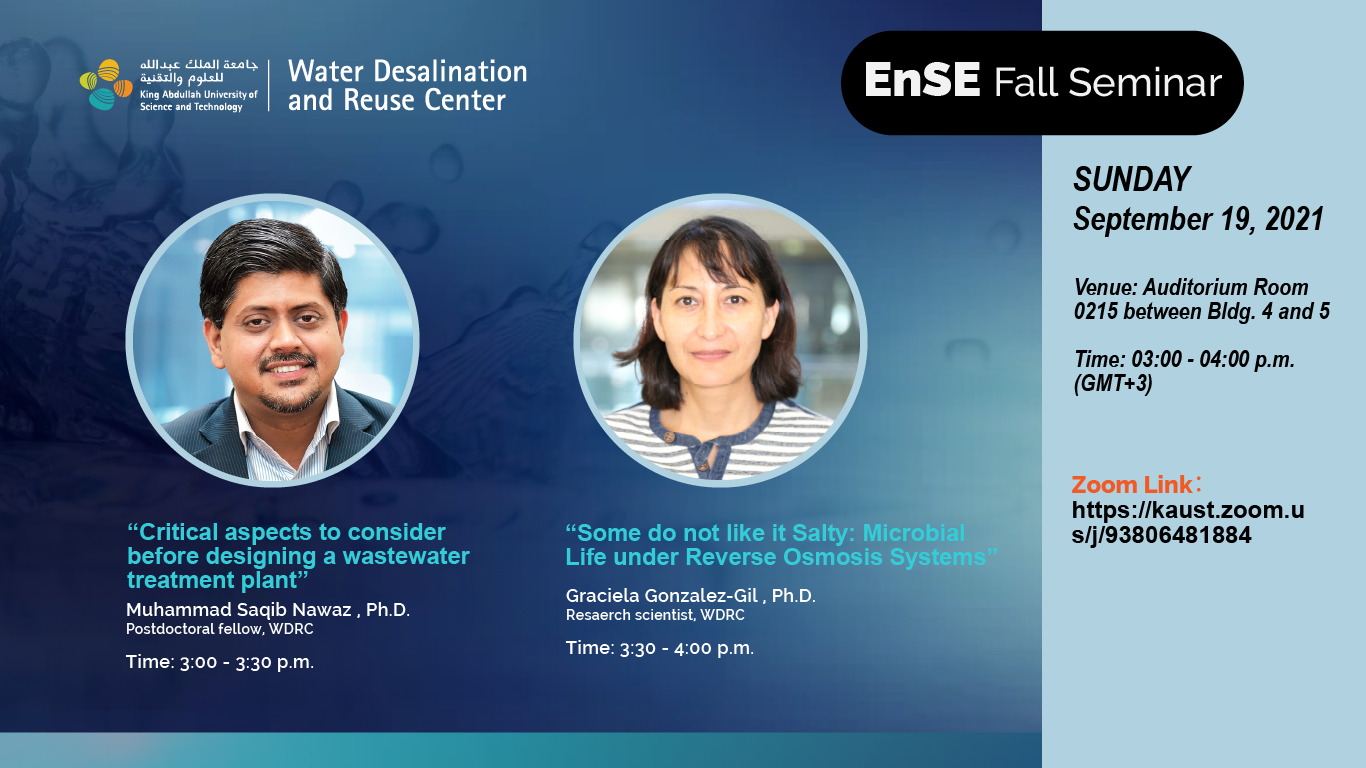



Venue: Auditorium Room 0215 between building 4 and 5 (A Light Refreshment will be provided)
On Zoom: https://kaust.zoom.us/j/93806481884
by Dr. Muhammad Saqib Nawaz, Postdoctoral fellow, WDRC
Abstract
Wastewater treatment plants (WWTP) are tailor-made for every project as per customer and site requirements. As an environmental engineer, it is critical to understand the scope of an inquiry before starting the process design. This presentation will highlight those critical factors that need to be considered thoroughly before the design starts.
About the Speaker
Dr. Muhammad Saqib Nawaz holds a PhD degree in Environmental Engineering. He has over a decade of experience working in water and wastewater treatment and remained involved in designing, commissioning, and troubleshootings of various plants. Currently, he is serving as a post-doctoral fellow at WDRC, KAUST.
By Dr. Graciela Gonzalez-Gil, Research Scientist, WDRC
Abstract
We are running out of fresh water. Desalination of seawater using reverse osmosis membranes can alleviate the scarcity of drinking water. The desalination costs have decreased considerably, but there are opportunities to make the process more efficient by incorporating a microbiological knowledge-based approach to the operation and management of reverse osmosis plants. Join me for a discussion on one of such opportunities.
About the Speaker
Graciela Gonzalez-Gil is a research scientist at the Water Desalination and Reuse Center at KAUST.
She is fascinated by research aiming to understand the principles that drive the ecology of microorganisms in nature and how these principles are exploited in engineered ecosystems to promote or avoid microbial growth, particularly in the form of biofilms or granules.
Graciela obtained her Ph.D. in Environmental Science and Technology from the University of Wageningen in The Netherlands, where she worked with anaerobic granular sludge to treat industrial wastewaters.
She was a scientific collaborator and an accredited lecturer in soil microbial ecology at the prestigious ETH in Zurich. She co-developed advanced methods to assess in situ microbial methane oxidation in hydrocarbon contaminated soils and landfills. Then she moved to EPFL in Lausanne, where she worked with aerobic granular sludge to treat domestic wastewater.
She won a prestigious Marie-Curie fellowship to investigate methane oxidation in anoxic sediments.
At KAUST, she recently developed a method to estimate in situ microbial growth rates in drinking water taps; the knowledge gained is critical for rational tap flushing strategies during extended stagnation periods. Furthermore, she established a method to assess antiscalants’ microbial growth potential under seawater conditions, which are relevant for desalination plants.
She wants to transform the water desalination industry by incorporating a microbiological knowledge-based approach to the operation and management of reverse osmosis plants.